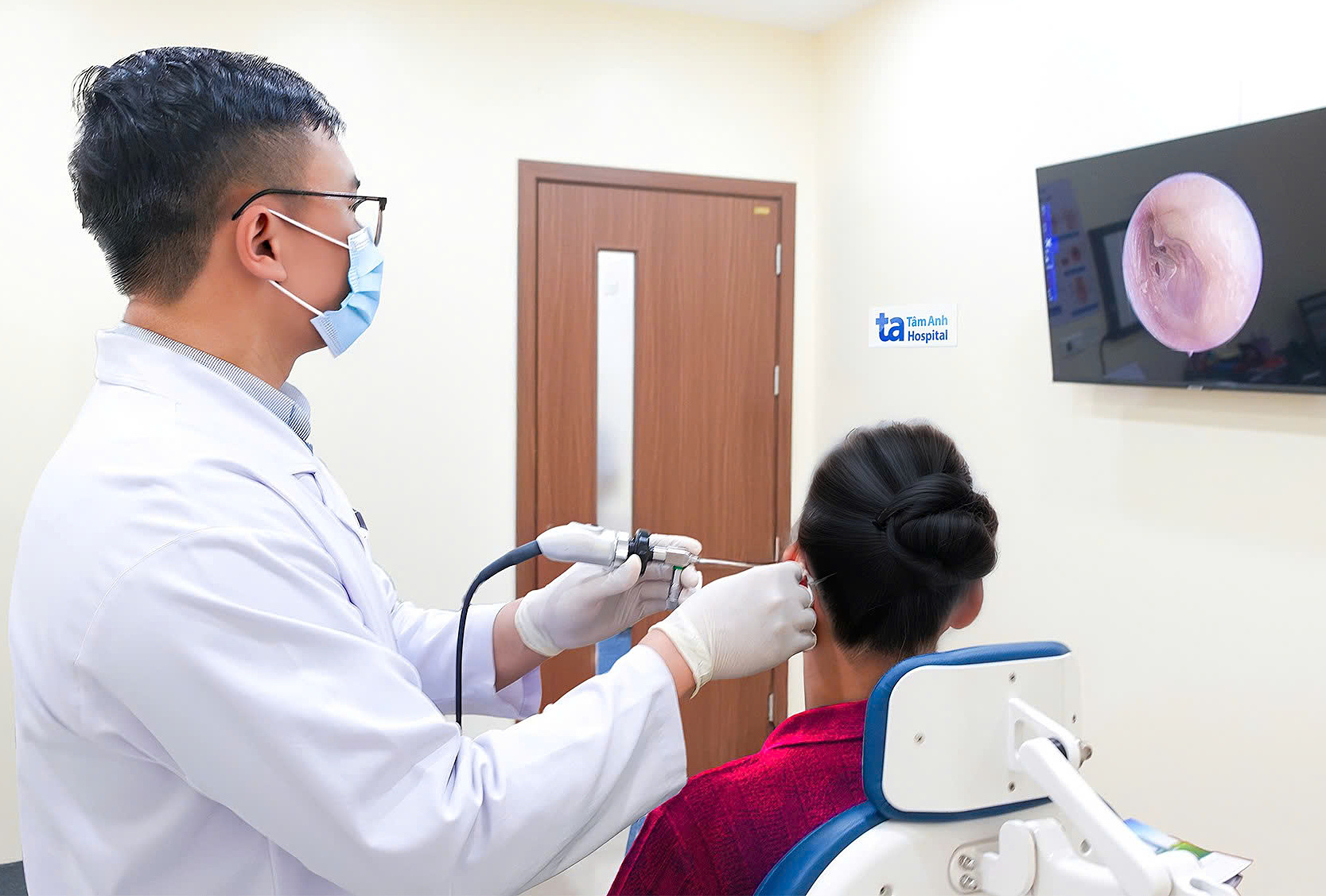A woman, referred to as Anh, experienced dizziness and tinnitus after her son accidentally kicked a ball that hit her head and left ear. An examination the following day at Tam Anh General Clinic in District 7 revealed a sizable rupture in her left eardrum. While the tympanic cavity (the area behind the eardrum) was dry and her nose and throat showed no abnormalities, a hearing test indicated a second-degree conductive hearing loss in her left ear. Dr. Nguyen Tri Minh Tri of the Otolaryngology Unit diagnosed Anh with a traumatic eardrum perforation resulting in hearing loss.
"Eardrum perforations from direct trauma, like in a fight, are common, but perforations caused by a ball hitting the head are less so," Dr. Tri said.
Dr. Tran Thi Thuy Hang, Head of the Otolaryngology Center at Tam Anh General Hospital in Ho Chi Minh City, explained that the sudden impact of the ball on Anh's ear generated a significant pressure wave. This wave traveled through the ear canal and directly onto the eardrum (a thin membrane about 0.1 mm thick). The abrupt pressure increase in the ear canal prevented the Eustachian tube (responsible for equalizing air pressure on both sides of the eardrum) from opening quickly enough to regulate pressure in the middle ear. The resulting pressure differential, exceeding the eardrum's capacity, caused the rupture. This mechanism is similar to eardrum perforations from sudden loud noises (like explosions or jet engines) or a hard slap to the ear.
Eardrums can also rupture from direct mechanical actions, such as inserting cotton swabs or other hard objects too deeply into the ear. Excessive force can not only perforate the eardrum but also damage the ossicles (malleus, incus, and stapes) in the middle ear. These tiny bones transmit sound vibrations from the eardrum to the cochlea; if damaged, hearing is further compromised.
Anh received medication and was advised to return for a follow-up appointment in two weeks or sooner if any unusual symptoms arose. Two weeks later, the perforation had healed considerably, reducing in size. Anh's ear pain, tinnitus, and hearing loss had also improved.
 |
Dr. Tri examines Anh's ear during a follow-up appointment. *Photo: Tam Anh General Clinic, District 7* |
Common symptoms of a traumatic eardrum perforation include sudden sharp pain, tinnitus, hearing loss, deep earache, bleeding from the ear, and dizziness if the vestibular system is affected. Without prompt and proper treatment, complications such as middle ear infections, permanent hearing loss, mastoiditis, and deafness can occur.
According to Dr. Tri, traumatic eardrum perforations, especially small ones without outer or middle ear infections, are likely to heal naturally. In such cases, patients only need monitoring and treatment for any related nasal or throat issues. If the perforation doesn't heal on its own, surgical repair (tympanoplasty) may be an option after any inflammation is addressed.
Dr. Tri recommends that anyone experiencing unusual symptoms after trauma to the ear area should seek immediate consultation with an otolaryngologist. Avoid inserting anything into the ear or applying ear drops if there's discharge or bleeding, and keep the ear dry. Patients should attend follow-up appointments as scheduled for monitoring and appropriate treatment to prevent complications.
Uyen Trinh
*The patient's name has been changed.
| Readers can submit questions about ear, nose, and throat conditions here for doctors to answer. |












